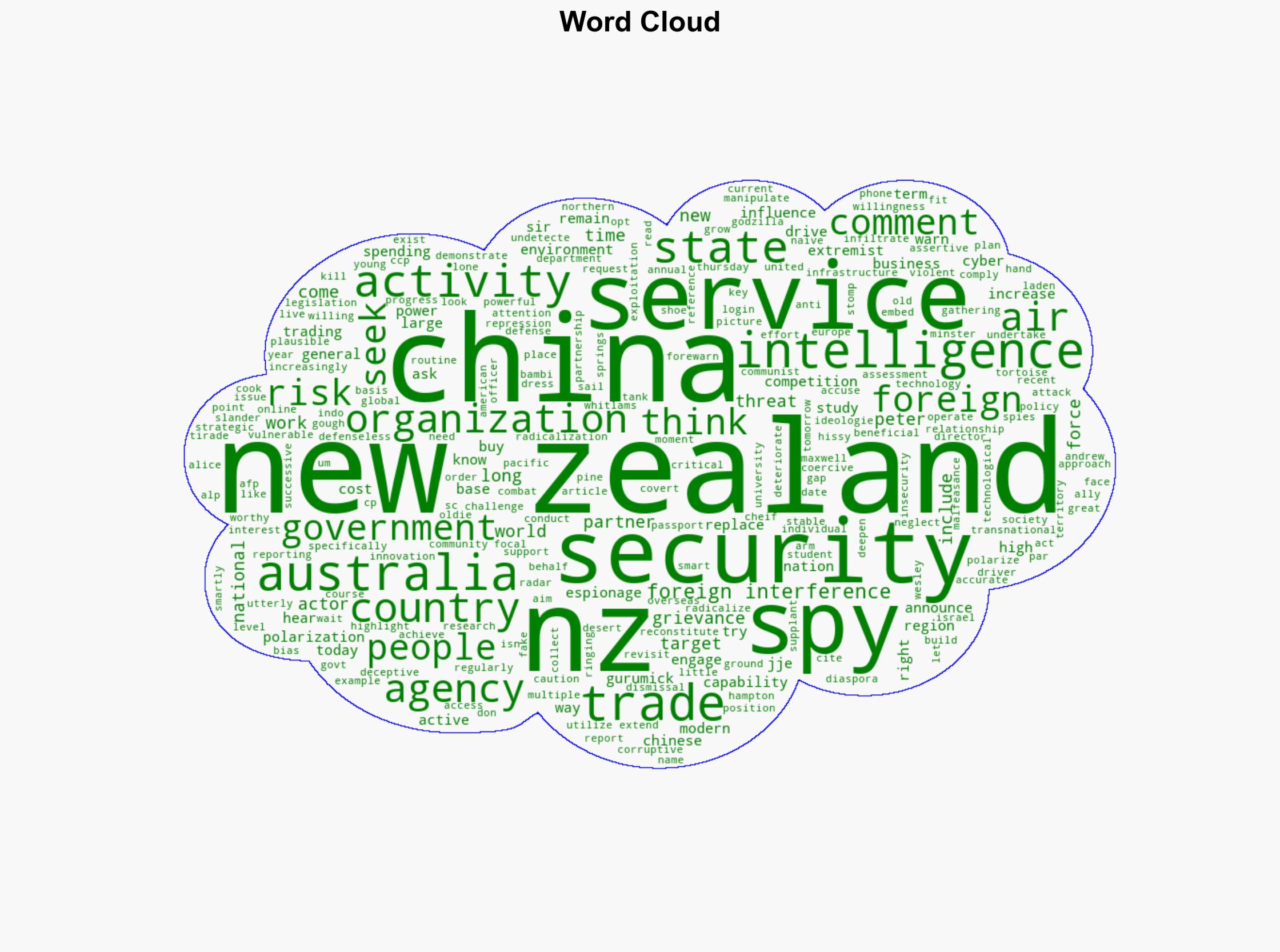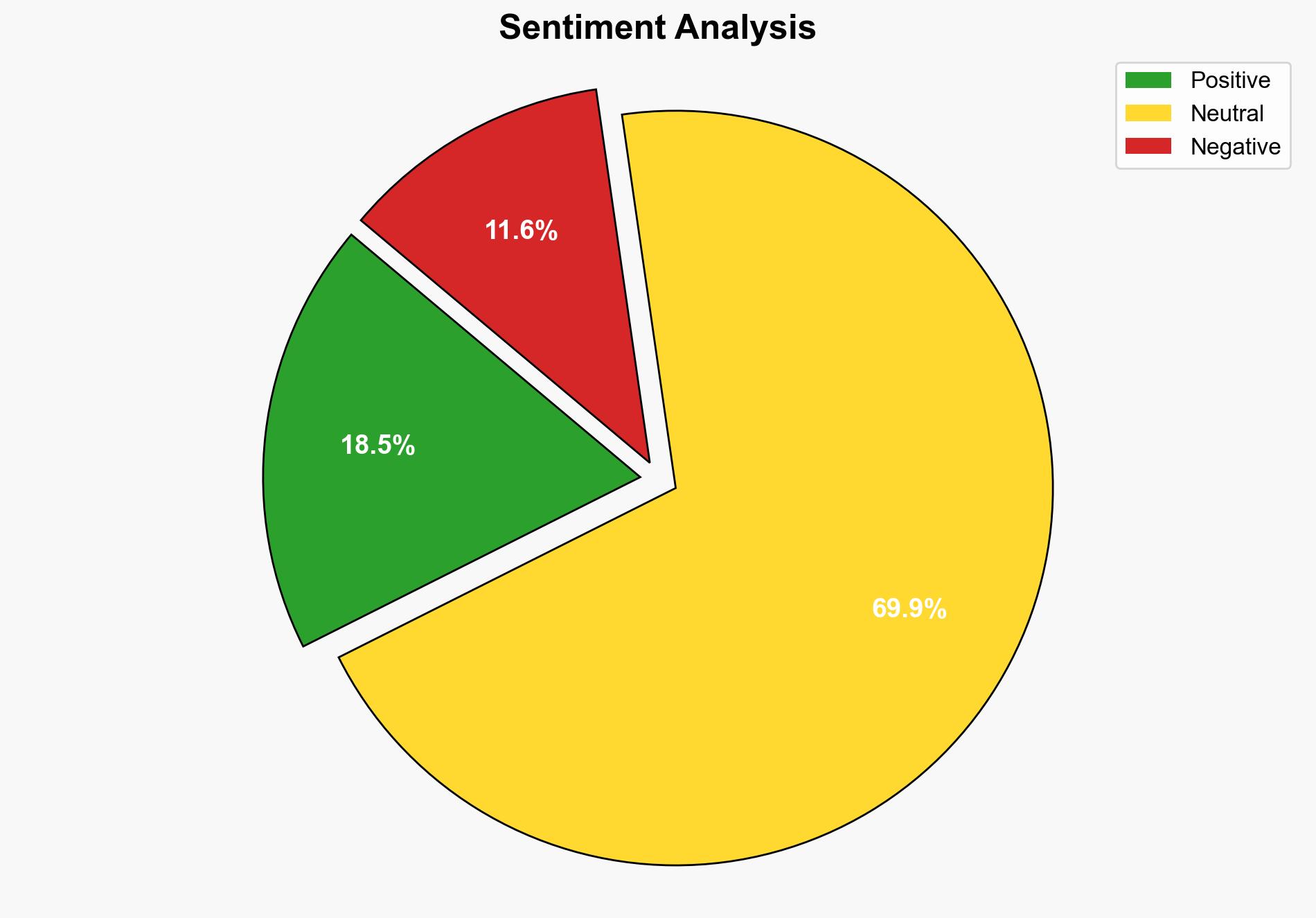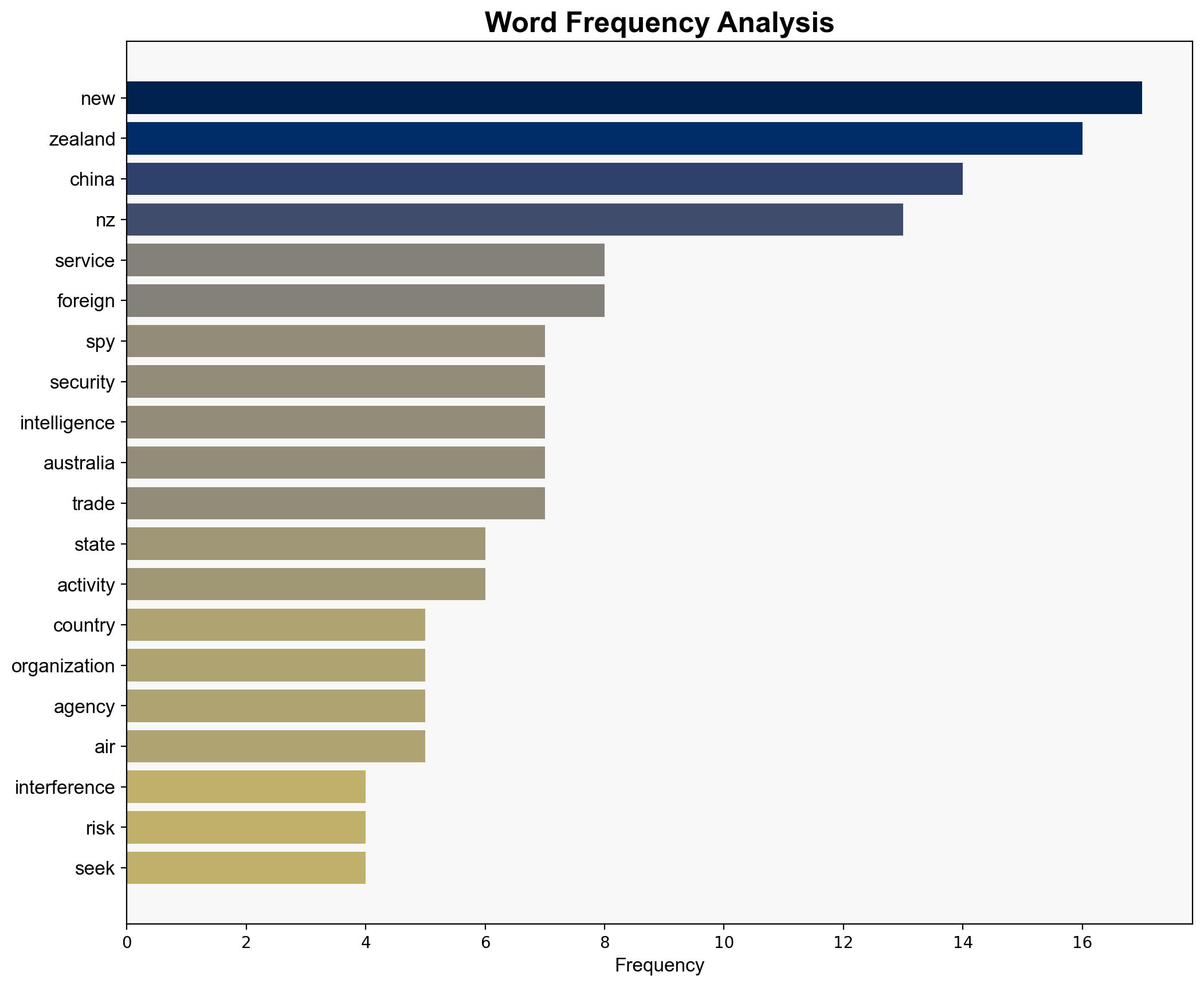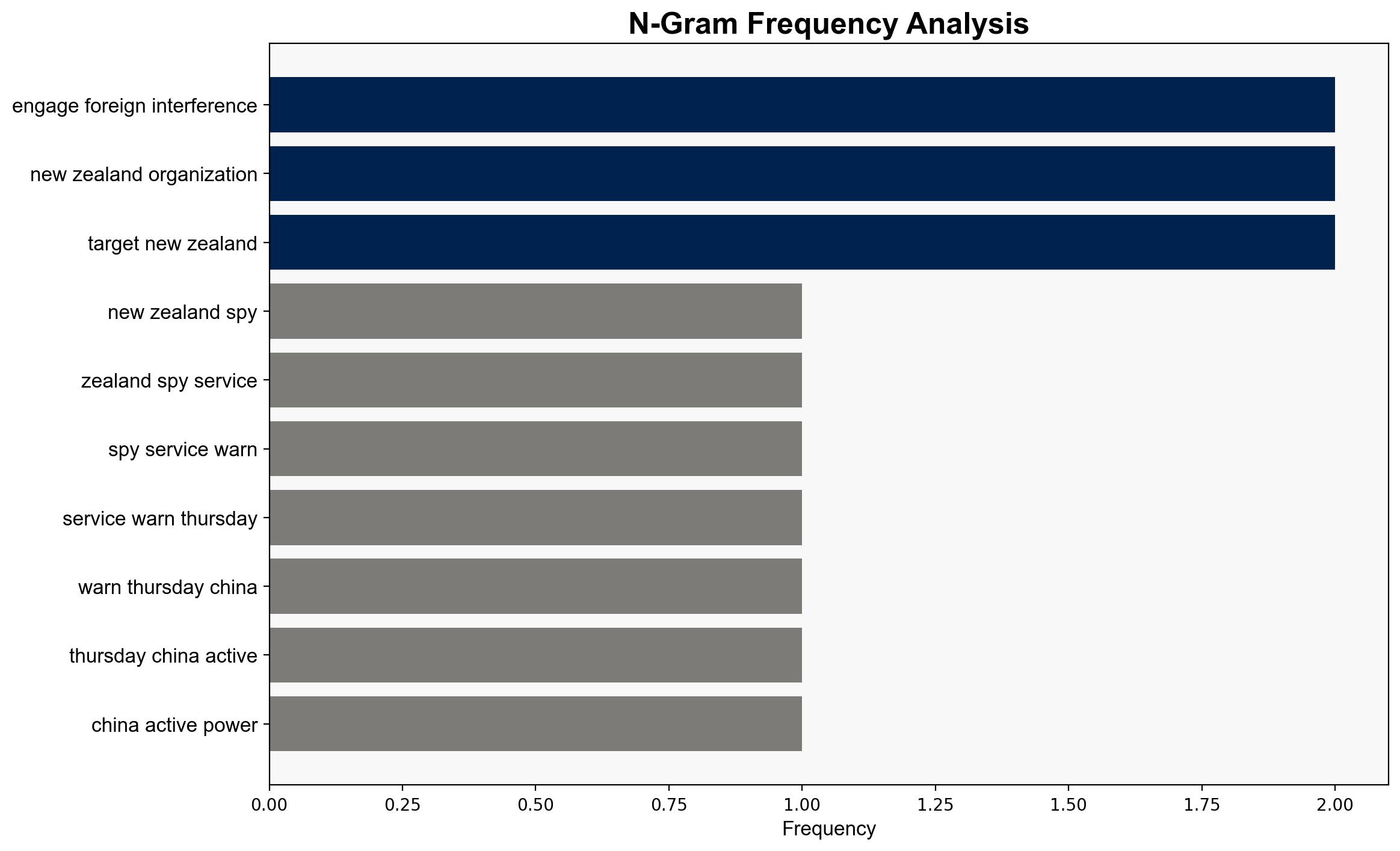New Zealand spy service warns of China interference – Japan Today
Published on: 2025-08-21
Intelligence Report: New Zealand spy service warns of China interference – Japan Today
1. BLUF (Bottom Line Up Front)
The most supported hypothesis is that China is actively engaging in foreign interference in New Zealand to extend its influence and gather intelligence. This is based on the New Zealand intelligence agency’s assessment of China’s activities as deceptive and coercive. Confidence level: Moderate. Recommended action: Strengthen counterintelligence measures and enhance regional cooperation to mitigate risks.
2. Competing Hypotheses
1. **Hypothesis A**: China is actively engaging in foreign interference in New Zealand, using deceptive and coercive methods to influence government and society. This includes leveraging business, universities, and cyber actors to gather intelligence and manipulate policy.
2. **Hypothesis B**: The perceived threat from China is exaggerated, possibly due to cognitive biases or misinterpretation of China’s legitimate diplomatic and economic activities as interference.
Using the Analysis of Competing Hypotheses (ACH) 2.0, Hypothesis A is better supported by the intelligence provided, which highlights specific activities and methods attributed to China, such as foreign interference and coercive tactics.
3. Key Assumptions and Red Flags
– **Assumptions**: Hypothesis A assumes that New Zealand’s intelligence assessments are accurate and unbiased. Hypothesis B assumes that there may be overinterpretation or mischaracterization of China’s actions.
– **Red Flags**: Lack of specific examples or evidence in the report to substantiate claims. Potential bias in interpreting China’s actions as solely negative.
– **Blind Spots**: Limited consideration of China’s perspective or potential legitimate interests in New Zealand.
4. Implications and Strategic Risks
– **Economic Risks**: Potential strain on New Zealand-China trade relations if interference claims lead to diplomatic tensions.
– **Cybersecurity Risks**: Increased vulnerability to cyber exploitation targeting critical infrastructure and technological innovation.
– **Geopolitical Risks**: Escalation of regional tensions in the Indo-Pacific, impacting alliances and security partnerships.
– **Psychological Risks**: Heightened public fear and polarization due to perceived foreign threats.
5. Recommendations and Outlook
- Enhance counterintelligence capabilities and cybersecurity infrastructure to protect against foreign interference.
- Foster regional collaboration with allies to address shared security concerns and enhance intelligence sharing.
- Scenario Projections:
- Best Case: Improved diplomatic engagement with China reduces interference activities.
- Worst Case: Escalation of interference leads to significant diplomatic and economic fallout.
- Most Likely: Continued low-level interference with periodic diplomatic tensions.
6. Key Individuals and Entities
– Andrew Hampton (Director General of Security, New Zealand)
7. Thematic Tags
national security threats, cybersecurity, counter-terrorism, regional focus




